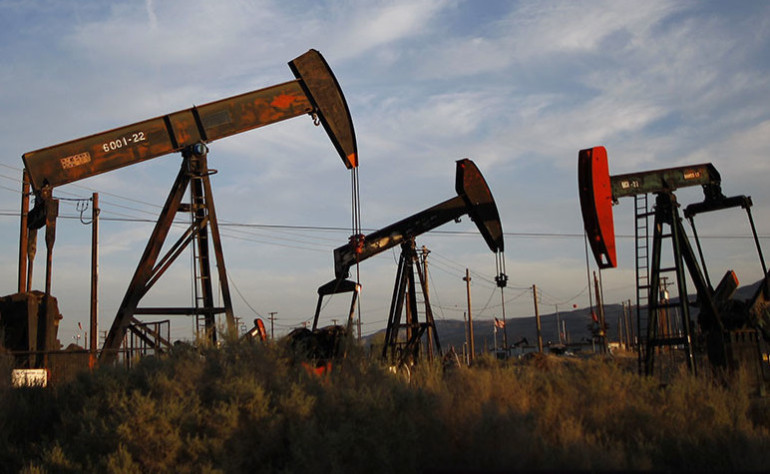Oil steady above $51pb after big OPEC-driven weekly rally

Oil prices edged higher on Friday, steady above $51 a barrel, with Brent crude on track for its biggest weekly rally since 2009, following OPEC’s decision to cut crude output in order to rein in a global glut.
After the deal was announced on Wednesday, the market will focus on the implementation and impact of OPEC’s first output cuts since 2008, to be joined Russia and possibly other non-OPEC producers.
Crude prices were pressured by data showing oil output in Russia rose in November to a post-Soviet high and news that Moscow would use its record November oil production as its baseline when it cuts output.
Front-month Brent crude futures rose 18 cents to $54.12 a barrel, a 0.3 percent gain, by 11:34 a.m. EST (1634 GMT). The contract was up nearly 15 percent for the week, its biggest gain since early 2009.
U.S. crude rose 27 cents to $51.33 per barrel and was on track for its biggest weekly gain since August 2015.
Oil drew support from a weak dollar, which slipped against a basket of currencies. Still, traders said profit-taking ahead of the weekend limited crude’s price gains.
“The petroleum markets have settled into quieter mixed flows as the waves created by Wednesday’s OPEC announcement gradually dissipate, with some light profit taking emerging in crude oil,” said Tim Evans, energy futures specialist at Citigroup.
“A weaker U.S. dollar is typically supportive for commodity prices and may have helped steady crude oil from the lows in today’s trade.”
On Friday at 1 p.m. ET (1800 GMT), energy services firm Baker Hughes Inc, is expected to report another increase in oil drilling rig counts, extending the rise into a seventh month.
In addition to Russia, traders also pointed to Iran as being a wild card.
U.S. President-elect Donald Trump’s transition team is examining proposals for new non-nuclear sanctions on Iran, the Financial Times reported on Friday.
Iran also threatened on Friday to retaliate against the U.S. Senate’s vote to extend the Iran Sanctions Act (ISA) for 10 years, saying it violated last year’s deal with six major powers that curbed its nuclear program.
The sanctions were first adopted in 1996 to punish investments in Iran’s energy industry and deter its pursuit of nuclear weapons.
With cuts being implemented next year only against end-2016 levels, analysts said there was still a possibility that oversupply, which has halved oil prices since 2014, remains a factor next year.
“There are still several open questions regarding compliance and the role of so-called ‘key non-OPEC countries’ in deepening the OPEC cut by a further 600,000 barrels per day (bpd),” JBC Energy said in a note.









0 Comments